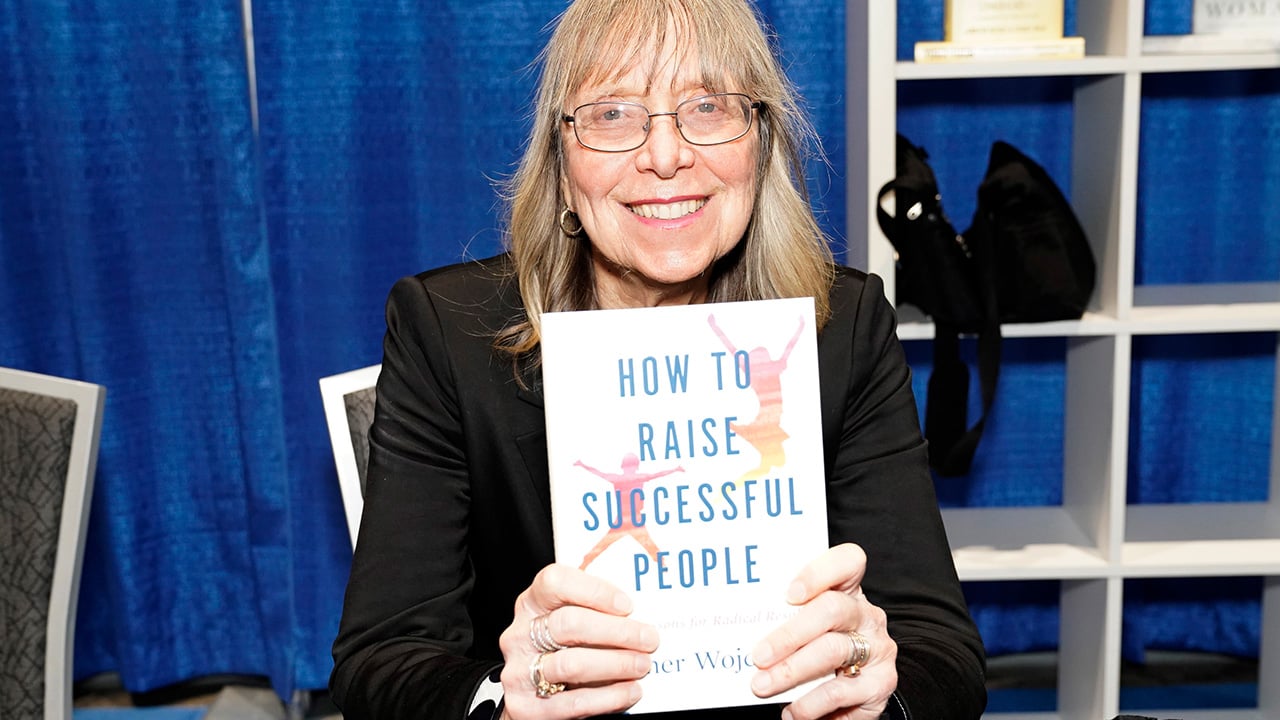Parenting expert Esther Wojcicki thinks we’re holding our children back. Here’s her rather “unpopular” solution.
Parenting is really freaking hard, so it’s no wonder that we’re always looking for tips and tricks to help us raise the best people we possibly can. Part of this means setting our kids up for success, and one mom thinks she’s cracked the code for unlocking our children’s potential. Esther Wojcicki, author of How to Raise Successful People and mother to three daughters, recently shared her top piece of parenting advice—and it’s probably not what you expected.
At 81 years young, Wojcicki has three extremely successful adult daughters—Susan is the CEO of YouTube, Anne is the co-founder and CEO of 23andMe, and Janet is a professor of pediatrics at the University of California San Francisco. As a parenting expert, Wojcicki believes that simple lessons can have radical results.
According to a pieceWojcicki wrote for CNBC, there is one big mistake she sees many parents make, and she’d like to be their wake-up call: stop doing everything for your kids! For many parents, the idea that you should help your kids as much as possible in order to help them succeed in life seems quite logical, however, this helicopter-style parenting may actually be detrimental to your child’s development.
Her number-one rule? “Don’t do anything for your kids that they can do for themselves.” That’s right, if they can do it, they should. And furthermore, stop removing every obstacle from your children’s paths, because that’s not what life is like in the real world. It’s hard to watch our kids struggle and sometimes fail, but that’s the only way they’ll learn and grow.

Photo: Getty Images/Marla Aufmuth
Of course, it’s important to create an environment where your children can come to you and ask for help, but it’s also crucial to trust that your kid can do things on their own. “When you trust kids to make their own decisions, they start to feel more engaged, confident and empowered,” Wojcicki says. “And once that happens, there’s no limit to what they can achieve.”
Now, she isn’t saying to plop your five-year-old in front of the lawn mower and tell them to call you when they are finished with the lawn. Instead, it is recommended that you start out small, with guided practice. Wojcicki’s method is “I do, we do, you do”—so you model, then do it will your child and then let them do it on their own.
Here are some examples of small things that you can assign to your child to help them build up some self-sufficiency and self-empowerment (and keep in mind that even toddlers can help with some of these):
Include them in meal prep: have them stir batter, crack eggs, or measure out ingredients.
Give them some control over their schedule: they can set an alarm for school mornings and come up with activities to do on weekends or after school.
Allow them to make choices (even simple ones): let them pick out their own clothing, decide how high they want to climb on the jungle gym and pick which snack they want in their lunchbox.
Have them do small age-appropriate chores: like bringing their dishes to the sink or setting the table before a meal, collecting the dirty laundry from around the house and making their bed.
Wojcicki even says that when you’re checking your kid’s homework, it’s ok not to get them to 100%. If they never get any answers wrong they won’t learn in the same way, so leave a few errors behind.
At the end of the day, it’s important to let your children encounter challenges and failure, and it is critical that they learn to confront what life will inevitably throw their way. Believe in your kids’ capabilities so they will believe in themselves.

 PARENTING TIPS
PARENTING TIPS PREGNANCY
PREGNANCY BABY CARE
BABY CARE TODDLERS
TODDLERS TEENS
TEENS HEALTH CARE
HEALTH CARE ACTIVITIES & CRAFTS
ACTIVITIES & CRAFTS


